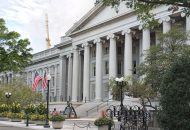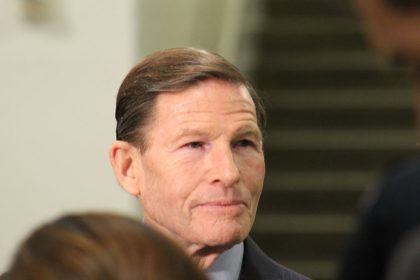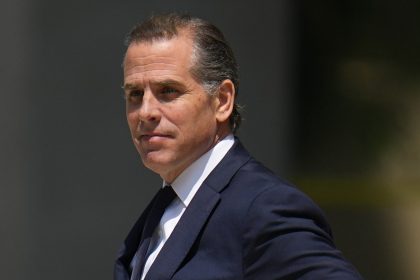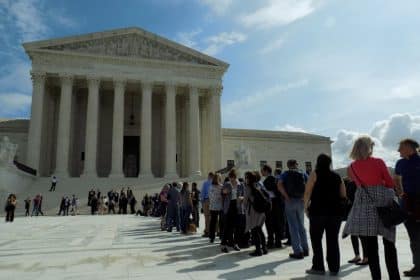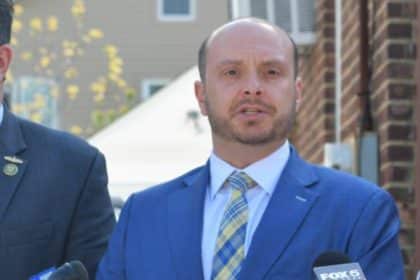Here’s Why Donald Trump Is Talking About Another Tax Cut
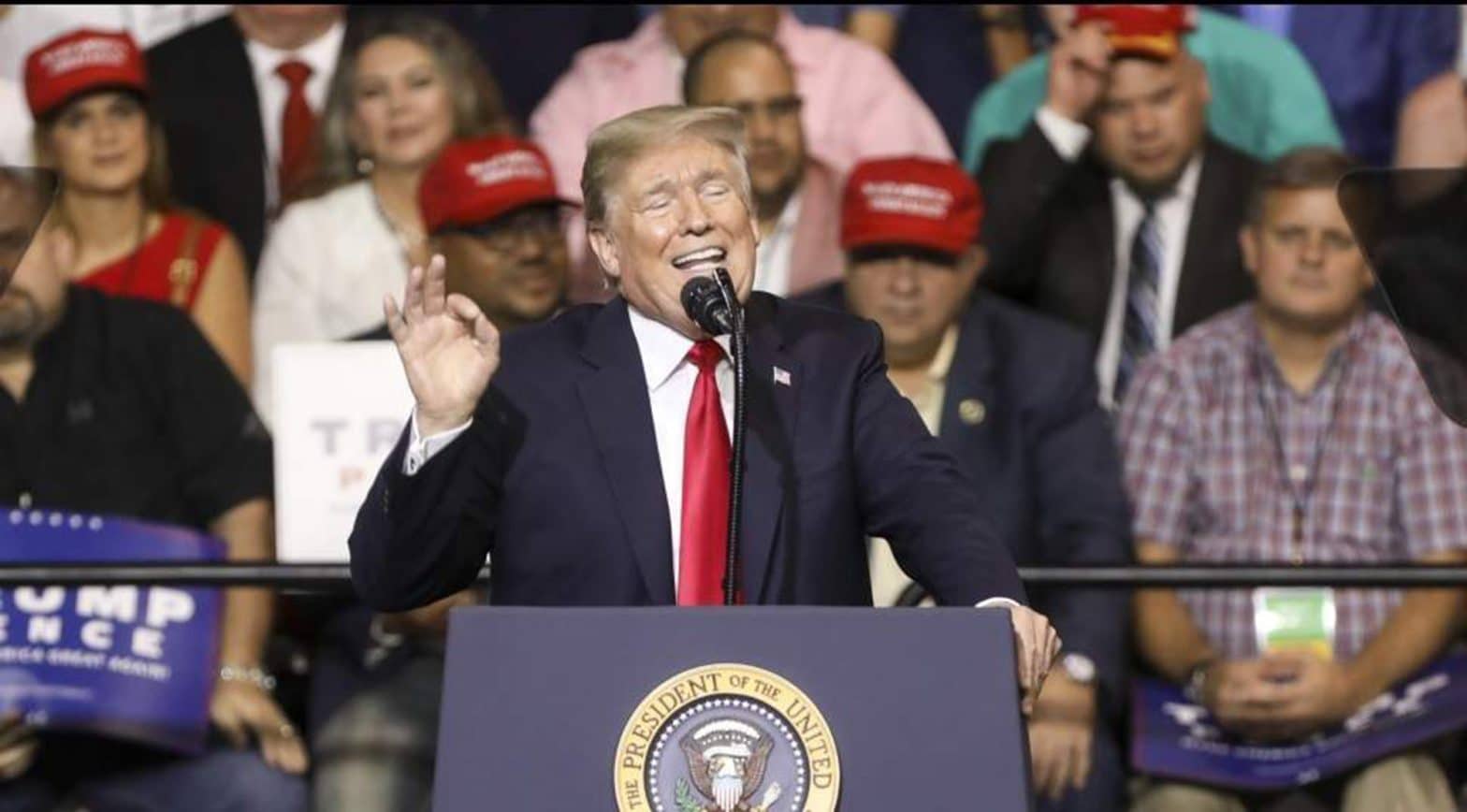
WASHINGTON — President Donald Trump has said it’s time to consider another tax cut, as evidence mounts that wealthier taxpayers benefited a lot more than others from his first one.
“We are going to be doing a major middle income tax cut if we take back the House, and we will be talking about that sometime later,” he said earlier this month. Democrats now run the House, while Republicans control the Senate.
The new cut, the president said, would be “mostly devoted to middle income who have really been big beneficiaries of the (last tax cut) that we did which was the largest in the history of our country.”
But data on the impact of the tax cuts, enacted two years ago, shows in great detail what other studies have found: Those with big six-figure incomes were bigger beneficiaries.
A congressional district-by-district analysis of benefits by the nonpartisan Tax Foundation found that regardless of the state, city or locale, the pattern holds: The wealthy got roughly twice as big a break, as measured by the% change in after-tax income, than those with an adjusted gross income of less than $200,000.
“The tax cuts were tilted towards higher income households,” said Frank Sammartino, senior fellow at the nonpartisan Tax Policy Center in Washington.
The constituent clamor is clear across the country.
“The 2017 Tax Cuts and Jobs Act is not turning out like President Donald Trump and the Republicans hoped it would — at least, based on the public opinion data we have to date,” Frank Newport, senior scientist at the Gallup Poll, wrote as the income tax filing season ended in April.
After that 2019 income tax filing deadline — the first time most people filed returns affected by the Trump tax law — Gallup found 49% disapproved of the law, while 40% approved. Other independent polls had similar results.
The tax law, approved in Congress without any Democratic support, reduced tax rates and limited many popular itemized deductions, notably state and local taxes, while increasing the standard deduction substantially.
The Tax Policy Center found taxpayers with incomes below $25,000 would see a tax cut of $40, or 0.3% of after tax income. Those earning $49,000 to $86,000 would get a cut of about $800, or 1.4% of after-tax income.
The percentages keep going up with income, so that those earning between $308,000 and $733,000 get an average cut of about $11,200, or 3.4% of income Those earning more get a cut of about $33,000, or 2.2%.
The center estimated that 60 to 76% of people would get a tax cut, and the law is credited with simplifying the taxpaying process.
In states with high state and local taxes, however, it has been less popular. In California, for instance, an estimated 8% of taxpayers will pay more, roughly double the percentage in most other states.
The furor over the cap on state and local taxes is another reason for the law’s perception problem.
“A majority of Americans have long believed that upper-income Americans and corporations pay too little in taxes. Did the new law address this situation? Americans, say no,” Newport said.
Polls showed that “Americans (correctly) perceived that the law did little to change this and in fact benefited corporations and the rich,” he said.
Taxpayer groups eagerly dispute such claims.
They note that tracking who benefited depends on what data go into an analysis. They cite a study from Congress’ Joint Committee on Taxation that found the highest percentage tax breaks went to people with incomes ranging from $20,000 to $50,000. The percentages then slide downward as incomes go up.
“If you factor in items such as the estate tax changes or the distribution of the corporate tax cuts, or the new deduction for businesses that declare profits and pay tax through 1040 tax returns, that’s going to show a different picture from examining only taxpayers filing returns with non-business income,” said Pete Sepp, president of the National Taxpayers Union.
But Steve Wamhoff, director of federal tax policy at the Institute on Taxation and Economic Policy, pointed out that the congressional analysis does not include the new break on estate taxes, which helps the wealthy disproportionately.
The Tax Foundation analysis, released last year, takes into account the impact of corporate and business-related taxes.
“High-income earners tend to derive a higher proportion of the earnings through items like capital gains and dividends, which increased in value after the corporate rate cut and raised their after-tax incomes,” said Garrett Watson, special projects manager at the Tax Foundation.
Whatever data one uses, a public perception remains — the rich got richer — and the White House is actively looking for ways to cut taxes for the middle class. So are congressional Democrats.
They agree on this much: The 2017 tax cuts are going to be a big 2020 campaign issue. But for different reasons.
That Trump is considering more middle class tax cuts is “a concession that the tax cuts didn’t work for anyone but the wealthy,” said Sen. Ron Wyden of Oregon, top Democrat on the tax-writing Senate Finance Committee.
Republicans countered that regardless of what data one uses, “You have to look beyond that and look at the economy. The economy is booming, unemployment is at historic lows and I think everybody has benefited,” Sen. John Cornyn, R-Texas, a committee member, told McClatchy.
Trump is thinking about doing more. “We are going to be doing a major middle income tax cut if we take back the House and we will be talking about that sometime later,” Trump said last week. Democrats now run the House, while Republicans control the Senate.
Top Trump economic adviser Larry Kudlow called the push for tax cuts an “informal process” now, one that could gel later in the 2020 campaign.
“We’re talking to House members, we’re talking to Senate members, we’re talking to our colleagues inside the administration. We’re talking to people on the outside,” he told reporters earlier this month.
But Rep. Richard Neal, chairman of the tax-writing House Ways & Means Committee, told McClatchy he saw no further sweeping middle class tax cut anytime soon.
“I think what it (Kudlow’s talk) is is an effort to acknowledge the pitfalls of who got what in the 2017 bill. It was pretty lopsided,” the Massachusetts Democrat said.
———
Francesca Chambers of McClatchy’s Washington Bureau contributed to this report.
———
©2019 McClatchy Washington Bureau
Visit the McClatchy Washington Bureau at www.mcclatchydc.com
Distributed by Tribune Content Agency, LLC.










